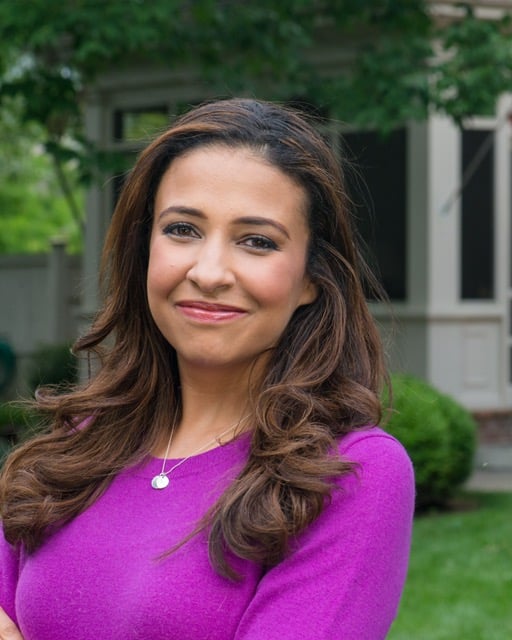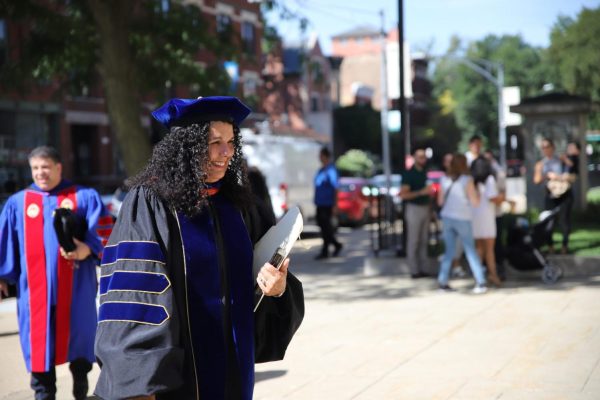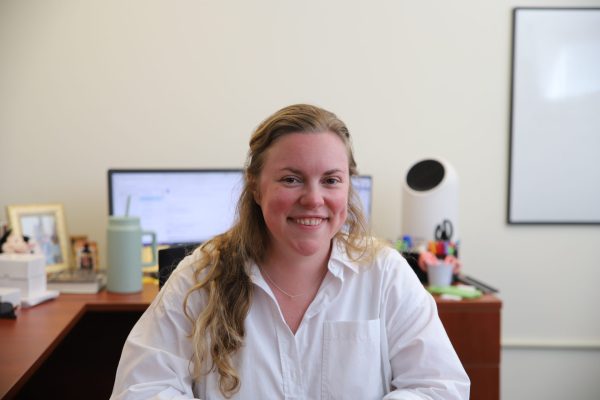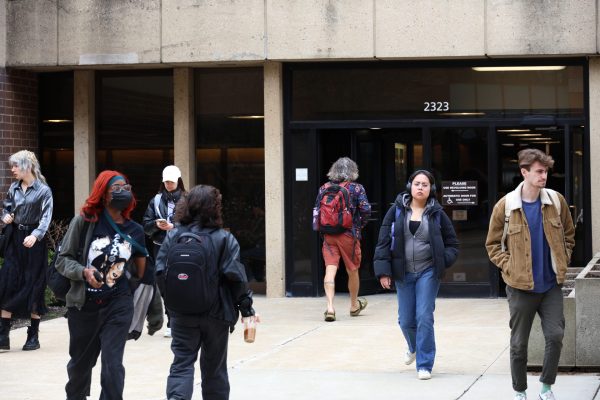Former Miss America running for Attorney General
(Courtesy of Erika Harold)
A former Miss America is running for Illinois Attorney General against a former governor, a mayor from Highland Park, a former chief administrator of Chicago’s police accountability office and a handful of other hopeful candidates.
It’s a heated race that kicked off in mid-September of last year when current Attorney General Lisa Madigan made the surprise announcement that she would not seek re-election in November. Madigan, a Democrat, is the state’s first female attorney general, a position she has held since 2003.
And in a crowded field of eight Democrats and one other Republican, Urbana-based lawyer and Miss America 2003, Erika Harold, is aiming to stand out as a “political outsider.”
In a YouTube video published last August, Harold announced her bid for attorney general, and shortly thereafter the Chicago Tribune reported that Rep. Jim Durkin, of the 82nd District and Illinois House Minority Leader, had endorsed Harold’s campaign.
The Urbana, Illinois native graduated from the University of Illinois in 2001 where she received a Bachelor’s degree in political science while also graduating as a Chancellor’s Scholar. She told the DePaulia she has long been interested in “our government and the political forces that shape it.”
“I also wanted to explore how our system of governance and the political processes compared to governmental and political structures around the world,” she said.
Upon graduation, Harold was accepted into the prestigious Harvard Law School. But after realizing she couldn’t afford the roughly $175,000 cost of attendance over three years, she came up with another idea to fund her next educational endeavor.
“The Miss America Organization is the nation’s largest provider of scholarship assistance to young women, and I knew that winning the Miss America title would enable me to obtain the money necessary to pay for tuition and room and board at Harvard Law School,” Harold said.
Nine months later, the title was hers. Harold credits the organization with helping her become a better leader and allowing her to advocate for causes she believes in, like anti-bullying campaigns. She promoted a community service platform, “Preventing Youth Violence and Bullying,” which she based on her own high school experiences – including “pervasive and severe sexual and racial harassment” that eventually forced her to change schools.
Other duties as Miss America included speaking to students, developing bully prevention programs for use in schools, and bringing her message to television on shows like “Good Morning America,” “The Today Show,” and the Emmy-winning PBS series “In the Mix.” For her efforts, she garnered numerous awards, including a leadership award from the National Center for Victims of Crime.
Upon graduating from Harvard Law School in 2007, Harold worked in Chicago as an attorney for the litigation firms of Sidley Austin LLP and Burke, Warren, MacKay & Serritella, P.C. In 2013, she began working at Meyer Capel in Champaign, but she still had political aspirations.
She ran against incumbent Rep. Rodney Davis in the 2014 Republican primary for Illinois’ 13th Congressional District seat, a race she ultimately lost, though not without winning over 40 percent of the vote.
But in a competitive race for attorney general, Harold says she’s confident her lack of political experience – a trait she shares with Democratic contenders Jesse Ruiz and Renato Mariotti – and her passion for fighting corruption will inspire voters at the ballot box.
“The fact that I am a political outsider who is committed to fighting public corruption, hopefully, will help people to have confidence that I am fighting for their interests, as opposed to partisan or special interests,” Harold said.
That’s similar to the rhetoric that’s being used on the Democratic side as well, with former Gov. Pat Quinn and state Rep. Kwame Raoul in particular trading barbs in recent weeks over who is more politically connected. Other Democratic hopefuls have similarly stressed their political autonomy while vowing to increase the power of the office to fight public corruption, leading the Associated Press to call the campaign “a race to see which candidate is the most independent voice free from outside influence.”
But does such a candidate exist?
The campaign for Illinois Governor has already attracted national media attention for being potentially one of the costliest elections of all time, and the Chicago Sun-Times reported last Monday that since 2017 the eight Democratic candidates for attorney general have raised a combined $7.5 million. For her part, Harold has acknowledged receiving at least $350,000 from Bruce Rauner at a debate on March 7.
So when politicians getting big donations claim they are outsiders, do voters even believe them?
“I’ve always thought ‘political outsider’ was a rather vague term, and I’ve never been clear on where the shift from ‘outsider’ to ‘insider’ happens,” said Doug Klain, the Secretary of the DePaul College Democrats. “You could say it’s just once someone is elected to office, but there’s plenty of people that work in politics, or want to work in politics, who would certainly be political insiders.”
Jorin Burkhart, the chairman of DePaul’s conservative Young America’s Foundation (YAF) chapter, approaches the term differently.
“I think the existence of (political) outsiders in Illinois shows that our state government is incompetent and static,” Burkhart said. “It seems as if we have to resort to outsiders at this point.”
On the other hand, Burkhart says it is important to pay attention to where the insiders are donating their money.
“If an outsider were to receive a large donation from, say, the Pritzker family, I’d say that would be a red flag as far as the legitimacy of their outsider status,” Burkhart said. “Receiving funds from a group like the NRA, though, would not necessarily mean the same thing. I think that ‘following the money’ does have somewhat of an impact on what voters see.”
Since Aug. 21, 2017, Harold has received 258 donations that range from $5 to $30,000 totaling over $700,000, according to campaign financing data obtained through Illinois Sunshine.
Other issues Harold is campaigning on include addressing the opioid epidemic, cyberbullying, criminal justice reform, and Chicago’s problem with gun violence.
She says she wants to enhance community policing, create more after-school opportunities and jobs for Chicago youth and allocate increased funding for social workers and violence interrupters in communities affected by violence.
Harold’s campaign hasn’t been without controversy.
In an article published on March 8, NBC 5 cited anonymous sources who claimed she responded negatively toward the idea of gay adoption during a behind-the-scenes interview for the Miss Illinois pageant.
Specifically, the article claimed Harold was asked hypothetically whether she would put a child into foster care with “a.) A loving gay couple or b.) A heterosexual couple who were known child abusers.” She reportedly responded that she would choose the heterosexual child abusers.
Harold says she now “supports same-sex adoption and same-sex foster parenting.”
Harold will have to beat Gary Grasso, the former Mayor of Burr Ridge and a member of the DuPage County Board, to win the Republican primary on March 20.
If Harold were to win the Republican primary and win in November, she would be the first Republican to hold the position since Jim Ryan, who was attorney general prior to Madigan.








Andrzej • Apr 3, 2018 at 5:50 pm
Thank you for serving our nation Mike. And also Harold. Harold. Imagine 2 houses, and a burglar wishes to enter one of them. He does a check on the house and peeks through the letterbox. Keys on a table nearby, windows open, valuables on display. He checks the second house. He looks through the letter box and sees the owner in combats with a loaded shotgun pointed directly at him from a few feet. Which one would YOU burgle? My feeling is that mankind, for all its faults, will always have tribal warfare in its genes, for right or wrong. A nation deciding to disarm for some supposed higher moral ground is just virtue signalling that ends in disaster. Bullies need standing up to.